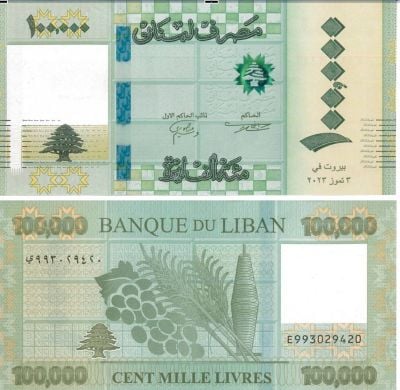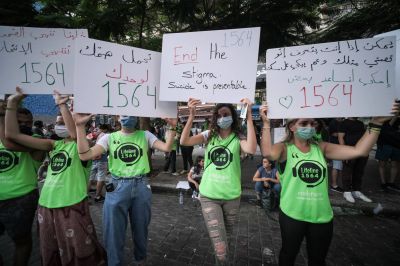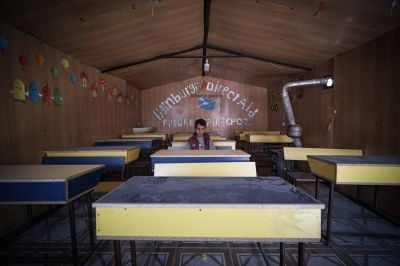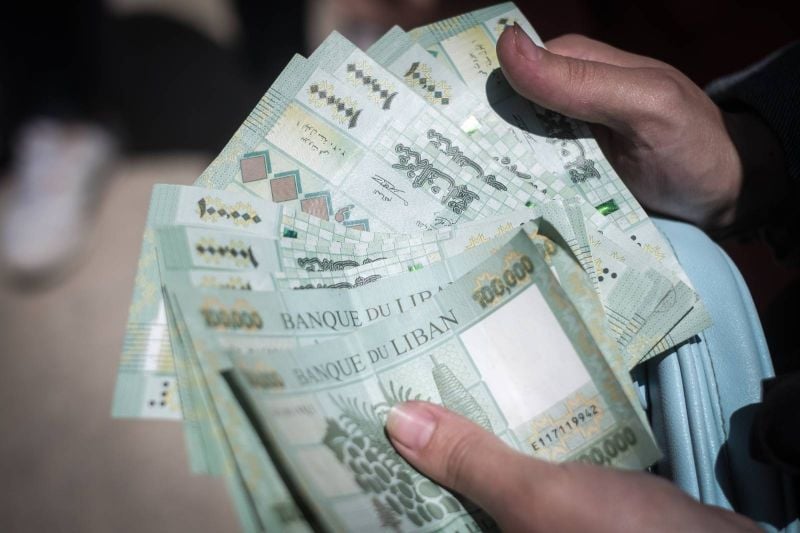
A man shows a tack of Lebanese lira notes. (Credit: João Sousa/L'Orient Today/File photo)
BEIRUT – As the end of the year — and tax season — descends, shop and home owners have been surprised in recent weeks to find that their municipality taxes have drastically increased since 2022.
The increased rates, which are meant to counter a growing public dependency on spending in dollars, are hitting businesses the hardest.
One dukkaneh convenience store owner in Beirut said they were told to pay LL14 million in municipality taxes this year, compared to last year’s LL3 million tax. Other business owners, who spoke to L’Orient Today on condition of anonymity to protect their businesses, also said they saw large tax hikes.
And the increases aren’t limited to Beirut. The owner of a men’s clothing store in Jbeil reported paying LL90 million this year, compared to LL10 million just last year. An employee at another clothing store in Jbeil told L’Orient Today their tax had increased elevenfold, rocketing from LL12 million in 2022 to a staggering LL132 million in 2023.
What’s behind the change?
Diminishing municipal funds
Per Lebanese law, each municipality operates individually, meaning that prices in Beirut, the north and south could vary according to the decisions taken by each municipality independently. A full picture of new tax rates countrywide remains unclear.
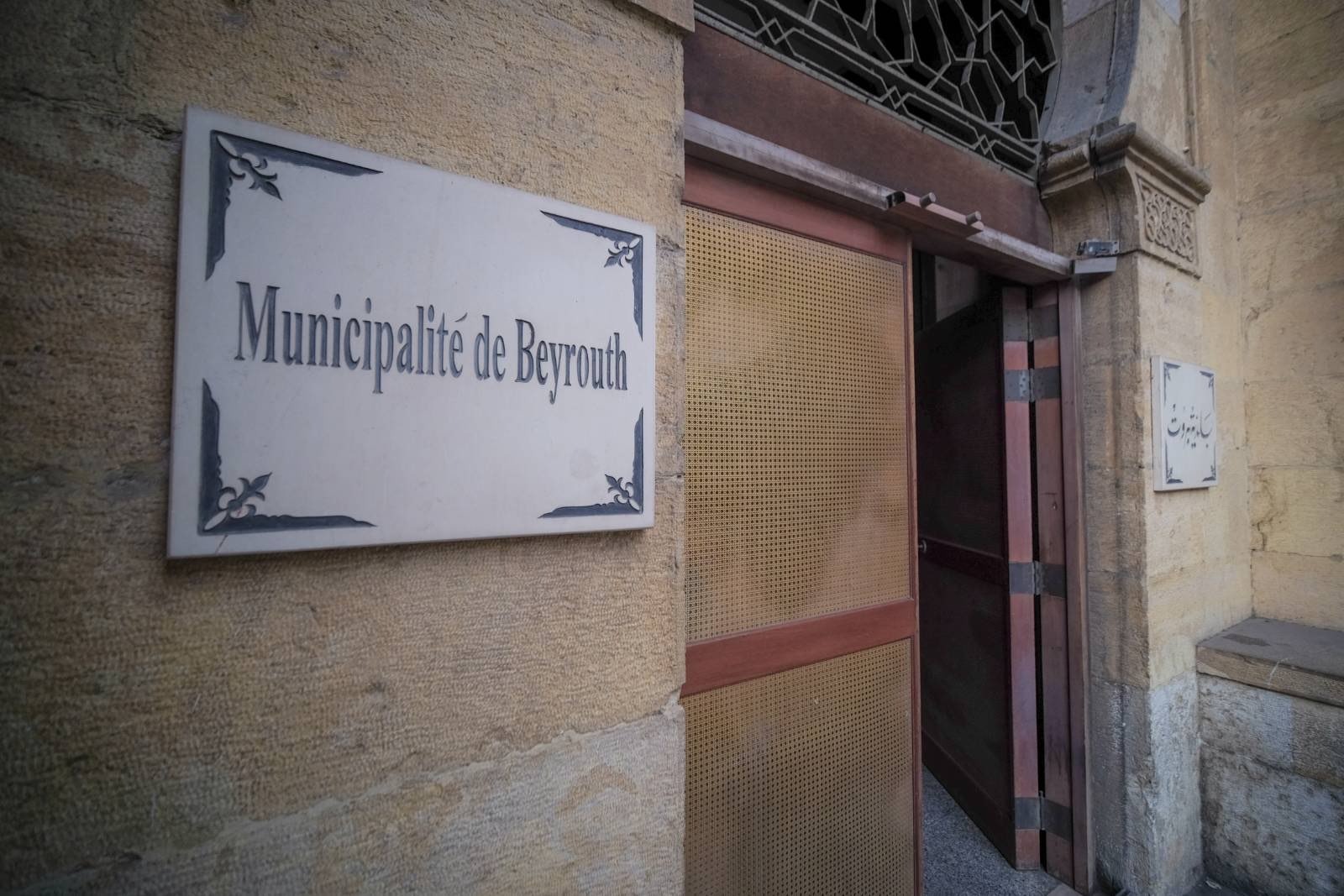 The Beirut municipality headquarters on Oct. 14, 2023. (Credit: João Sousa/L'Orient Today)
The Beirut municipality headquarters on Oct. 14, 2023. (Credit: João Sousa/L'Orient Today)
Jbeil Mayor Wissam Zaarour broke down the difference between the two taxes that constitute their main revenue streams.
While a residential municipality tax is a yearly fee paid by households, the commercial tax is paid by owners of commercial spaces and shop owners to their respective municipalities.
Both taxes vary according to the dimensions of the space, its estimated monetary value and its location.
According to Zaarour, the average tax before 2019 was LL135,000 for homeowners (about $90 according to the exchange rate at the time) and LL300,000 (about $200) for businesses.
But then in late 2019 came the countrywide financial crisis, decimating the lira’s value and whittling away at public services.
“Due to the deficit experienced the past three years, we were falling behind on providing our usual services,” Zaarour said. “We were faced with two options, either shut down our operations and send our employees home, or increase our yearly fees.”
In 2022, they charged local residents at a higher rate of LL4,000 to the dollar, while local businesses and shop owners had to pay their fees at a rate of LL8,000.
That meant residents were paying an annual average tax of LL360,000 for their homes, and business owners were paying LL1.6 million. The individual amounts depended on the size of the properties.
This was only a temporary solution.
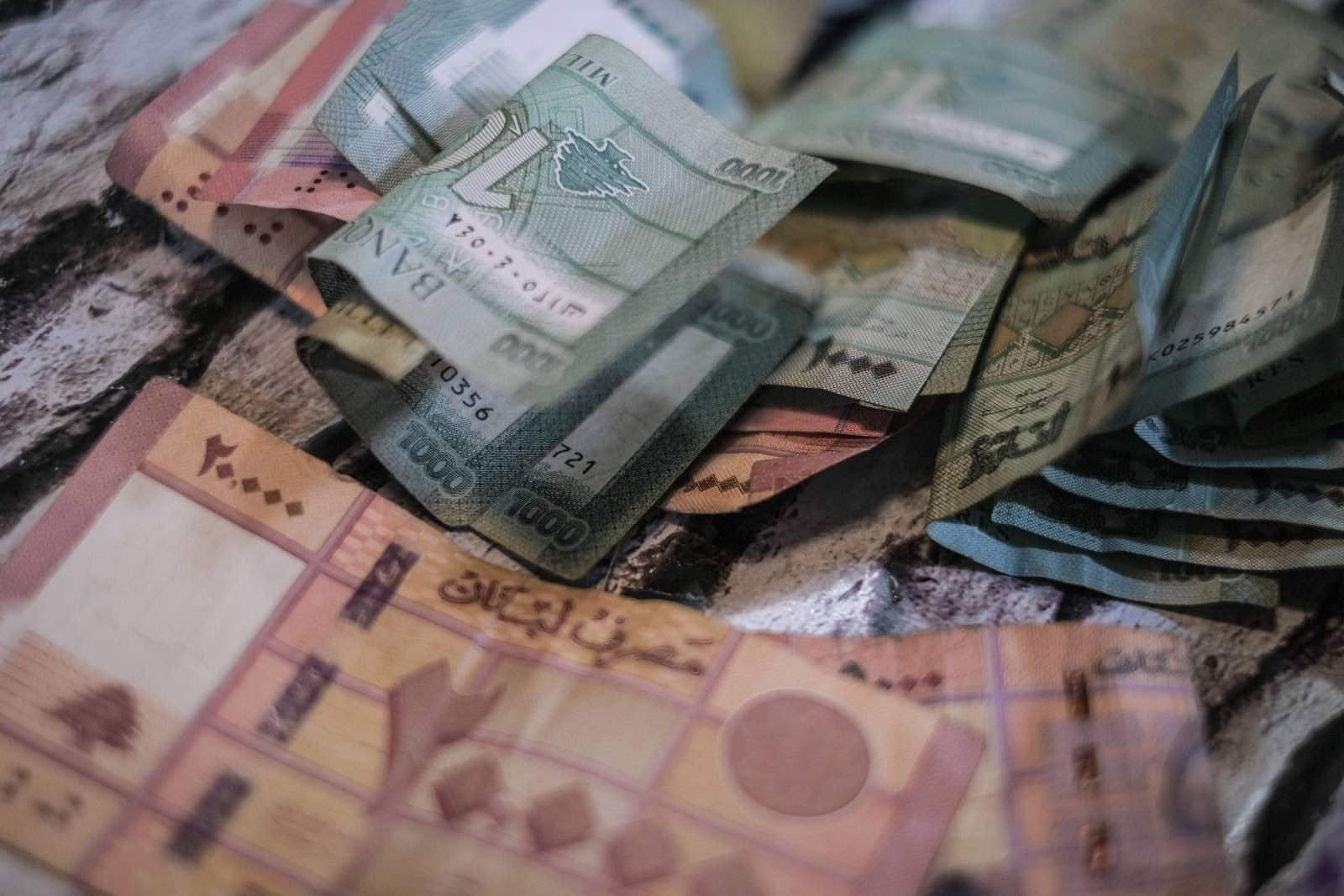 A stack of Lebanese lira notes. (Credit: João Sousa/L'Orient Today/File photo)
A stack of Lebanese lira notes. (Credit: João Sousa/L'Orient Today/File photo)
The municipality’s deficit only grew as the financial crisis wore on, pushing Zaarour and his board to revisit their fees. This meant that, in 2023, they enacted a drastic increase for the first time in three years.
“We made the decision to fully dollarize the commercial tax this year, as local businesses have started charging their customers in dollars.” That is, while the taxes are calculated in dollars, shop owners are now expected to settle their fees at a rate of LL80,000, just below the market rate.
For residents, however, their tax will be charged at a more lenient LL25,000 rate instead. “We took into account the number of local residents who are either retired, public sector employees” who are still paid their salaries in lira, Zaarour explained.
What are taxpayers saying?
“We may be charging our prices in dollars, but sales have considerably dropped compared to 2019,” said the employee of the clothing store in Jbeil.
A bar owner in the area complained that business is not quite brisk enough to offset the year’s higher tax. He reported paying taxes but not “getting enough in return.” While he experienced a surge in sales due to the boom in tourism over the summer, his business experienced fluctuations throughout the year. The war in Gaza and the political uncertainty have additionally affected their operations, with sales dropping significantly in the last two months.
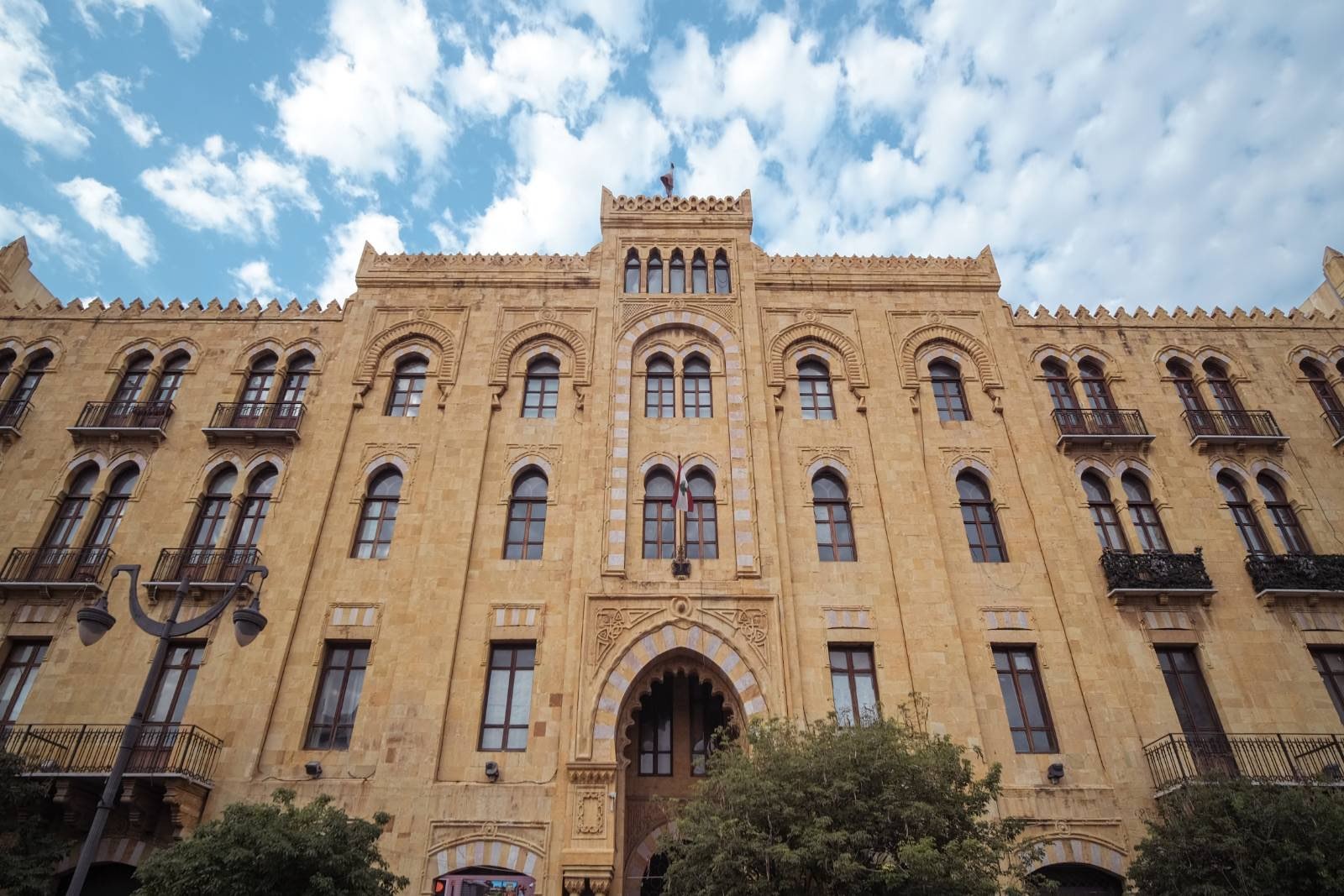 The Beirut municipality headquarters on Oct. 14, 2023. (Credit: João Sousa/L'Orient Today)
The Beirut municipality headquarters on Oct. 14, 2023. (Credit: João Sousa/L'Orient Today)
Beirut Governor Marwan Abboud told L’Orient Today similar measures had been enacted in the capital, though the new taxes were still lower than those in Jbeil.
According to him, Beirut had been collecting commercial and homeowner taxes at the government’s old official exchange rate of LL1,500 until early 2023, but this option is no longer sustainable as their “expenses increased exponentially while their revenues dropped considerably.”
“The municipality’s reserves lost their value due to the currency depreciation and remain trapped in banks. As the economy has become increasingly dollarized, we are forced to pay for all services and contractors in dollars.”
While Beirut authorities were able to keep their operations afloat since the economic collapse in 2019, Abboud added that public services would last a mere three more years with the remaining budget.
Khodor Bou Orm, head of finance at the Beirut municipality, explained that there was no way for them to differentiate between residents who get paid in dollars and those who get paid in Lebanese lira. As a result, they were unable to charge residential and commercial taxes at the same rate. Instead, they charged all homeowners at the same exchange rate — one lower than the rate for businesses.
“After careful considering, we found it fair to charge residents at a rate of LL15,000 [to the dollar],” Bou Orm said, “or 10 times what they were paying in previous years.”
Businesses, meanwhile, will be charged their taxes at a rate of LL45,000 to the dollar, 30 times more than in previous years, according to Abboud.
Still, he maintained that the Beirut fees are lower compared to other regions in Lebanon and shop owners will have the option to pay their taxes in installments.
These tax adjustments are still lower than the lira adjustment, as the dollar is now worth around LL89,000.
Authorities could revisit the fee sometime in the future, Abboud said, depending on the collective reaction of business owners.
But no such change is yet in the works.
